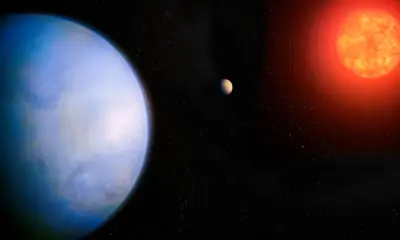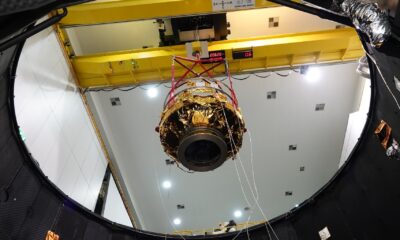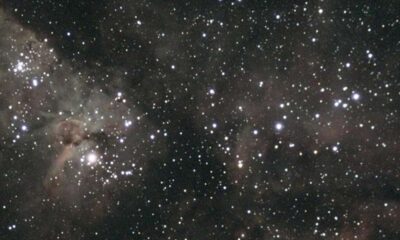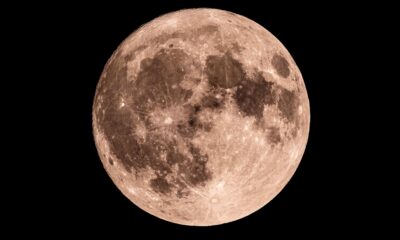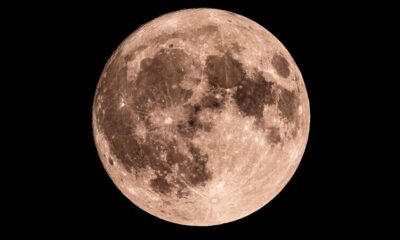Science
University of Georgia Identifies New McDonough Meteorite
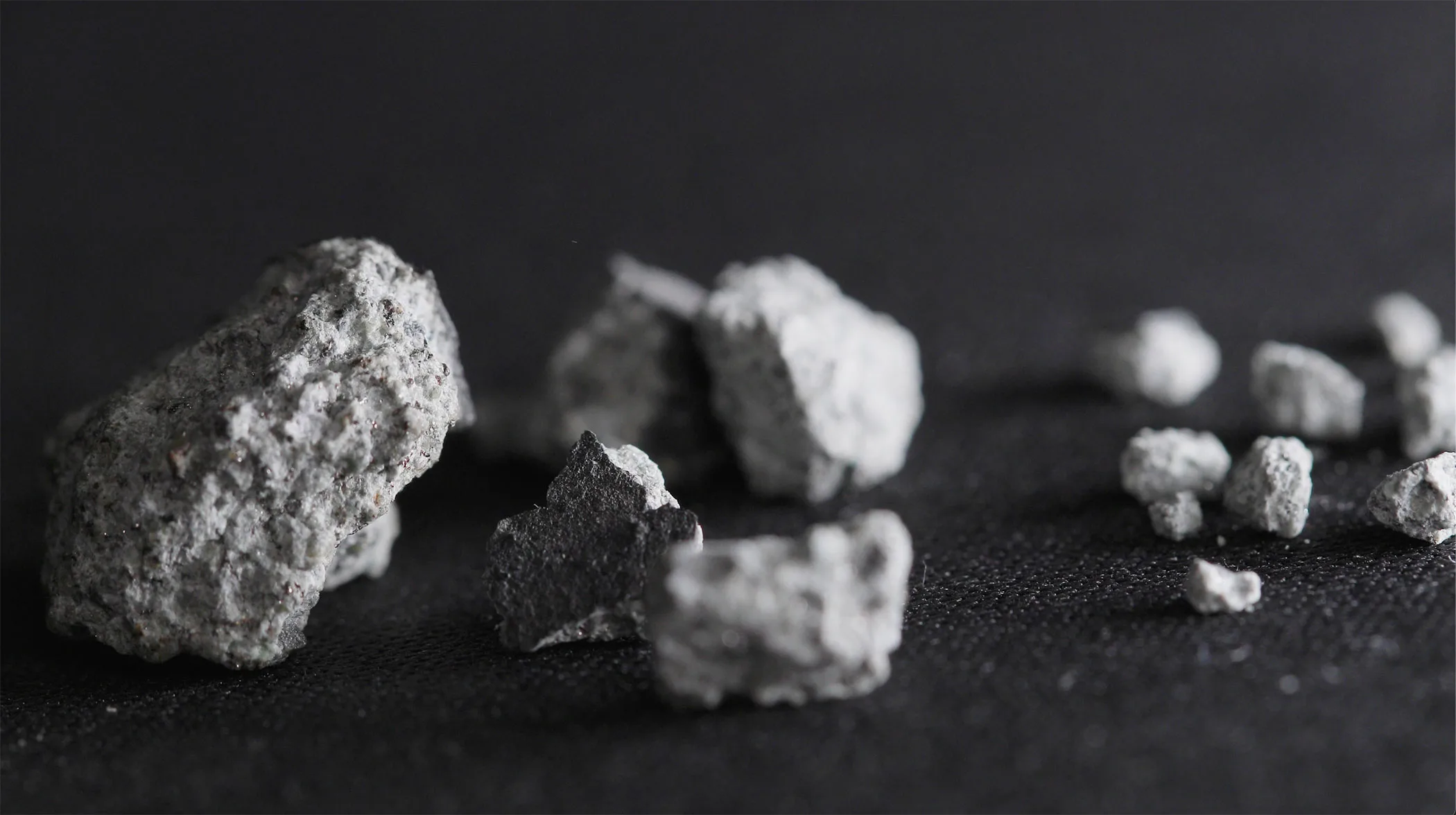
A new meteorite has been classified and named by researchers at the University of Georgia (UGA) following its dramatic entry into Earth’s atmosphere. The McDonough Meteorite crashed in Atlanta on June 26, 2023, captivating onlookers across the Southeast as a fireball lit up the daytime sky. Debris from the meteorite struck a residential home in Henry County, providing scientists with valuable samples to analyze.
Fragments of the meteorite were collected and delivered to UGA’s Franklin College of Arts and Sciences, where planetary geologist Scott Harris examined them to determine their origin and classification. Harris noted that the meteorite has a storied past that predates its impact on Earth. “This particular meteor that entered the atmosphere has a long history before it made it to the ground of McDonough,” he explained. Understanding its composition is crucial for identifying the specific group of asteroids it belongs to.
As the meteor entered the atmosphere, it traveled at a staggering speed, which decreased as it approached the ground. Harris indicated that even a small rock, comparable in size to a cherry tomato, poses a significant threat. “When they encounter Earth, our atmosphere is very good at slowing them down,” he stated. “But you’re talking about something that is double the size of a 50-caliber shell, going at least 1 kilometer per second. That’s like running 10 football fields in one second.”
The meteorite’s impact was substantial, penetrating a man’s roof and HVAC duct, causing a dent in the floor, and producing sounds akin to a close-range gunshot. “I suspect that he heard three simultaneous things,” Harris noted, describing the collision as well as a sonic boom and the impact with the floor. The resident has reported ongoing discoveries of tiny space dust remnants around his home.
Researchers at UGA received 23 grams of the estimated 50 grams recovered from the incident. Utilizing optical and electron microscopy, Harris classified the meteorite as a Low Metal (L) ordinary Chondrite, a type that formed approximately 4.56 billion years ago, predating the Earth. He explained that it likely originated from a breakup of a larger asteroid around 470 million years ago.
In collaboration with colleagues from Arizona State University, UGA is preparing to submit their findings, along with the official name McDonough Meteorite, to the Nomenclature Committee of the Meteoritical Society. The official documentation will be published in the Meteoritical Bulletin.
The McDonough Meteorite marks the 27th meteorite discovered in Georgia and the sixth witnessed fall in the state. Harris remarked on the increasing frequency of such events, attributing it to advancements in technology and a vigilant public. He plans to publish a detailed paper exploring the meteorite’s composition, speed, and dynamics within the coming year.
This research is essential for assessing the potential danger posed by larger asteroids. “One day there will be an opportunity, and we never know when it’s going to be, for something large to hit and create a catastrophic situation,” Harris stated. “If we can guard against that, we want to.”
The meteorite will be preserved at UGA for further studies, while additional fragments from the June 26 incident will be displayed at the Tellus Science Museum in Cartersville, making them accessible to the public.
-

 Technology4 months ago
Technology4 months agoDiscover the Top 10 Calorie Counting Apps of 2025
-

 Health2 months ago
Health2 months agoBella Hadid Shares Health Update After Treatment for Lyme Disease
-

 Health3 months ago
Health3 months agoErin Bates Shares Recovery Update Following Sepsis Complications
-

 Technology3 weeks ago
Technology3 weeks agoDiscover 2025’s Top GPUs for Exceptional 4K Gaming Performance
-

 Technology2 months ago
Technology2 months agoElectric Moto Influencer Surronster Arrested in Tijuana
-

 Technology4 months ago
Technology4 months agoDiscover How to Reverse Image Search Using ChatGPT Effortlessly
-

 Technology4 months ago
Technology4 months agoMeta Initiates $60B AI Data Center Expansion, Starting in Ohio
-

 Technology4 months ago
Technology4 months agoRecovering a Suspended TikTok Account: A Step-by-Step Guide
-

 Health4 months ago
Health4 months agoTested: Rab Firewall Mountain Jacket Survives Harsh Conditions
-

 Lifestyle4 months ago
Lifestyle4 months agoBelton Family Reunites After Daughter Survives Hill Country Floods
-

 Technology3 months ago
Technology3 months agoUncovering the Top Five Most Challenging Motorcycles to Ride
-

 Technology4 weeks ago
Technology4 weeks agoDiscover the Best Wireless Earbuds for Every Lifestyle

